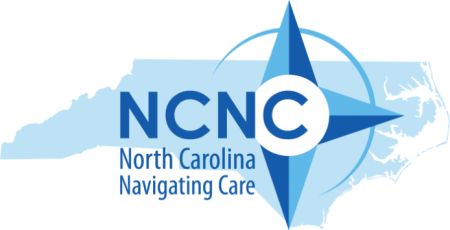
Social and Spirituality
Connecting with others for support and social activities—friends, families, spiritual and faith communities.
No family wants to feel isolated and alone. Children and families want to be connected to their community. We all want our children to be well-liked, have friends and opportunities to socialize, and, if desired, practice their faith. It does not always happen automatically. Young children need to have opportunities to meet same age peers, discover what they like to do or they are good at, and have social, cultural and if preferred faith based experiences. You may have some concerns and questions about how your child and family can build friendships and relationships, and experience inclusive leisure activities, personal networks, spiritual and faith communities. This part of the guide is built on finding resources related to four questions:
Where can I find a support community?
All families benefit from supportive relationships with other family members, friends, and community groups. Families that have a child with developmental concerns or a disability find that connecting with other families with similar situations help them to better understand their child’s condition, to feel more confident in their parenting, and to find strategies for helping their child to reach their potential.
The family support organizations below can help families find the information, resources, and social/emotional support they need.
Family Support Network™ of North Carolina affiliates across NC promote and provide support for families with children who have disabilities, prematurity, and special healthcare needs including information and referral, parent groups, workshops and social events.
https://fsnnc.org
The Autism Society of North Carolina improves the lives of individuals with autism, supports their families, has family support groups, leisure activities, and educates communities.
https://www.autismsociety-nc.org/find-chaptersupport-group/
The Arc of North Carolina provides direct supports and services that enable people with intellectual and developmental disabilities (I/DD) to lead full rich lives in the community.
https://www.arcnc.org/resources/chapters
The TEACCH Autism Program offers parent support groups, social play and recreation groups, and individual counseling and employment services for high-functioning individuals with Autism.
https://teacch.com/clinical-services/parent-support-and-education/
How can I find social and recreational activities for my child?
More than ever, there are a growing number of social and recreational options available to children of all abilities. There are various ways you may connect with programs available in your area.
A great place to start is with your local parks and recreation program. Look for activities including words like “Specialized, Adapted, and Inclusive” in the description to ensure it’s welcoming of individuals of all abilities or is exclusive to those with special needs. If you are unable to find an adaptive program, you may always connect with an existing leisure activity by asking if they would provide an inclusive environment for your child. Please note that it may require hands-on parental involvement to accommodate your child’s need, but it is a win-win for everyone, and most recreational activities can be adjusted as needed.
Networking with other families is a great way to learn about local events and recreation that is inclusive or sensory friendly. You may find families with similar needs at support groups, from parents of students in your child’s classroom, or in a faith community.
The school’s social worker or student services department are often aware of resources and activities that may be helpful for your child.
Using directories is a great way to find opportunities. Here are some options:
Sensory Friendly Activities in NC
https://www.belikebuddy.com/northcarolina
Vacation and Travel Guide for People with Disabilities
https://www.ncdhhs.gov/documents/access-north-carolina-vacation-and-travel-guide-people-disabilities
Autism Society of NC Resource Directory
https://www.autismsociety-nc.org/resource-directory/
Camps for Children of All Abilities
https://buildingconnectionsnc.com/
Contacting programs or organizations is a great way to connect for social and recreational activities. Here are some programs that are often specialized for children with disabilities and organizations that promote inclusion or provide social opportunities.
NC Special Olympics
https://sonc.net/
YMCA
https://www.ncymcaalliance.org/
The Autism Society of North Carolina
https://www.autismsociety-nc.org/social-recreation/
Best Buddies of NC
https://www.bestbuddies.org/northcarolina/
The Carolina Institute for Development Disabilities (CIDD)- Social Skills Groups & Social Smarts Groups
http://socialskills.cidd.unc.edu/SocialSkillsGroupClinic/?_ga=2.32597944.760221852.1614787752-1300364122.1551819603
Sport leagues
Upward Sports
https://www.upward.org/
Healthy Kids Running Series
https://healthykidsrunningseries.org/
American Association of Adapted Sports Programs
www.adaptedsports.org/
Rise Adaptive Sports
http://riseadaptivesports.org/
Summer Camp Directory for Exceptional Children
https://fsp.unc.edu/summer-camp
iCan Shine
https://icanshine.org/programs/
Sensory Friendly Movies
www.amctheatres.com/programs/sensory-friendly-films
SibShops (Support for Siblings)
http://ncsibs.org/about.php
What social and recreation activities are available for our family?
Almost any social or recreational activity can be adapted for inclusion. Activities that are commonly adjusted or may be exclusive to special needs families are swimming, karate, bowling, soccer, basketball, cheerleading, wall climbing, social skills groups, play groups, biking programs, Mom and Dad’s Night Out, sibling activities, sensory friendly movie events, sensory friendly holiday events, cooking groups, virtual groups, and horseback riding. There are no limits to what your child can do.
Where can I find a welcoming faith or spiritual community?
Special Needs Ministries are great ways for faith communities to be inclusive and support families of children with developmental disabilities. If you have a faith community, but they struggle with inclusion, it’s okay to share these resources to help them establish support for your family and others. If you do not have a faith community, the resources provided are a great place to start.
The Autism Society of North Carolina Faith Communities Toolkit
https://www.autismsociety-nc.org/wp-content/uploads/Faith-Toolkit-2019.pdf
Jewish and Faith Inclusion Resources
https://www.respectability.org/resources/faith-inclusion/
L’Arche North Carolina
https://larchenc.org/
Blue Blessings
https://www.autismspeaks.org/blueblessings
NC Baptist Developmental Disabilities Ministry
https://ncbaptist.org/developmental-disabilities/
JConnect for Jewish Individuals with Disabilities
https://www.jconnect.org/disability-inclusion/resources-for-creating-an-inclusive-community/
The Joni and Friends International Disability Center
https://www.joniandfriends.org/north-carolina/
Reality Ministries
https://realityministriesinc.org
Church4EveryChild
https://church4everychild.org/category/special-needs-ministry/
Alliance Church
http://www.abfboone.com/specialneeds/
